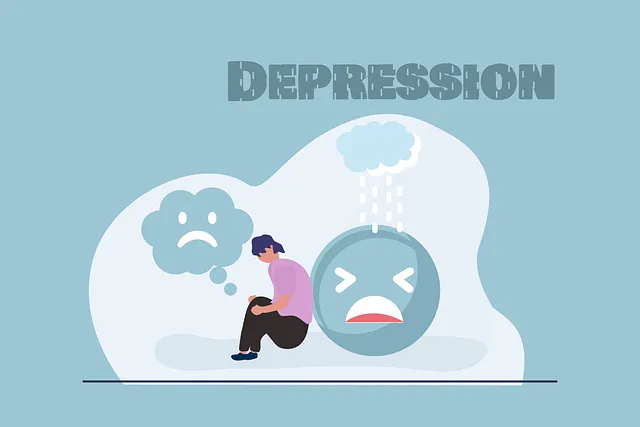Denver Kaiser Permanente's Behavioral Health Services tackles staff burnout through holistic initiatives, including self-care encouragement, stress management workshops, and cultural sensitivity training. Prioritizing employee well-being reduces absenteeism, improves job satisfaction, and enhances patient care quality by fostering resilience and a supportive work environment. The organization leverages mindfulness, community outreach, and evidence-based practices to maintain motivated healthcare providers, ultimately benefiting both staff and patients.
“Burnout among healthcare providers is a growing concern, particularly within dedicated services like Denver Kaiser Permanente’s Behavioral Health division. This article explores comprehensive strategies to prevent and combat burnout, focusing on creating a supportive work environment and empowering self-care. We delve into effective techniques such as mindfulness practices and stress management, highlighting their integral role in enhancing staff well-being at Denver Kaiser Permanente’s Behavioral Health Services. By implementing these strategies, healthcare organizations can foster a resilient and dedicated workforce.”
- Understanding Burnout: Recognizing the Signs and Impact on Denver Kaiser Permanente's Behavioral Health Services
- Creating a Supportive Work Environment: Strategies for Staff Well-being
- Enhancing Self-Care Practices: Empowering Healthcare Providers to Recharge
- Integrating Mindfulness and Stress Management Techniques within the Practice
Understanding Burnout: Recognizing the Signs and Impact on Denver Kaiser Permanente's Behavioral Health Services

Burnout among healthcare providers is a growing concern, impacting not just individual well-being but also the quality of care delivered to patients, especially within complex organizations like Denver Kaiser Permanente’s Behavioral Health Services. Recognizing burnout early is pivotal to preventing its severe consequences. Signs often include emotional exhaustion, depersonalization, and reduced personal accomplishment, as measured by professional assessment tools. This silent epidemic can lead to decreased job satisfaction, increased absenteeism, and a higher risk of errors in patient care.
At Denver Kaiser Permanente behavioral health services, understanding burnout is paramount. They have implemented various initiatives to combat this issue, focusing on holistic well-being. These include encouraging the development of self-care routines for better mental health and organizing stress management workshops to equip staff with resilience tools. Furthermore, fostering cultural sensitivity in mental healthcare practice helps address diverse patient needs, reducing workplace pressures and enhancing job satisfaction among providers.
Creating a Supportive Work Environment: Strategies for Staff Well-being

At Denver Kaiser Permanente behavioral health services, fostering a supportive work environment is paramount to prevent staff burnout. This involves implementing initiatives that prioritize employee well-being and create a culture of care. One effective strategy is the Community Outreach Program, which encourages staff members to engage in volunteer activities outside the workplace. This not only enhances their sense of purpose but also provides an avenue for social connection and stress relief. Additionally, resilience building workshops and mindfulness meditation sessions have been integrated into the work schedule, equipping staff with tools to manage stress, improve focus, and enhance overall mental health.
These supportive measures extend beyond individual benefits, positively impacting patient care by ensuring that healthcare providers are motivated, engaged, and resilient. By fostering a sense of community within the organization and promoting balanced well-being practices, Denver Kaiser Permanente behavioral health services aims to create an environment where staff can thrive, preventing burnout and ensuring high-quality patient care.
Enhancing Self-Care Practices: Empowering Healthcare Providers to Recharge

Healthcare providers, like any other professionals, require consistent self-care to prevent burnout. Encouraging a culture of mental health awareness and positive thinking is essential at organizations like Denver Kaiser Permanente behavioral health services. By prioritizing self-care practices, healthcare providers can recharge and maintain their well-being. This includes setting boundaries, engaging in regular physical activity, maintaining a balanced diet, and practicing stress management techniques such as mindfulness or meditation.
Empowering healthcare providers to prioritize self-care is a proactive approach that fosters resilience and enhances overall job satisfaction. Denver Kaiser Permanente behavioral health services can facilitate this by offering resources and support for mental health awareness and positive thinking, ensuring that providers feel equipped to manage their own well-being alongside that of their patients. Such initiatives contribute to a healthier work environment and ultimately better patient care.
Integrating Mindfulness and Stress Management Techniques within the Practice

In the fast-paced and emotionally demanding healthcare industry, burnout among providers is a growing concern. Integrating mindfulness and stress management techniques within medical practices offers a promising solution to combat this issue. Denver Kaiser Permanente behavioral health services have recognized the potential of these approaches, incorporating them into their comprehensive care model. Through mindful meditation, cognitive behavioral therapy, and other evidence-based stress reduction methods, healthcare providers can enhance their resilience and emotional well-being.
A key aspect of successful implementation is cultural sensitivity in mental healthcare practice. Denver Kaiser Permanente’s Community Outreach Program aims to address diverse patient populations’ unique needs by tailoring stress management interventions to respect various cultural backgrounds and beliefs. This inclusive approach not only improves provider satisfaction but also fosters stronger connections with patients, ultimately leading to better health outcomes.
Burnout among healthcare providers is a growing concern, but by implementing these strategies, Denver Kaiser Permanente’s Behavioral Health Services can foster a more supportive work environment. Enhancing self-care practices and integrating mindfulness techniques are essential to prevent burnout and ensure the well-being of staff. Through recognizing signs early, creating supportive spaces, and empowering providers to prioritize their own care, the organization can create a sustainable and healthy work culture for its behavioral health team.






